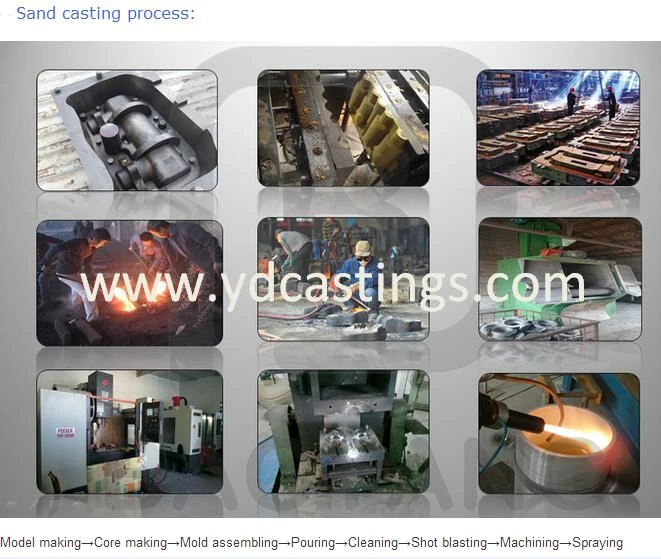Mobile:+86-311-808-126-83
Email:info@ydcastings.com
English
die casting aluminium
Die casting is a manufacturing process that involves forcing molten metal into a mold cavity under high pressure. Among various metals utilized in this technique, aluminum has gained significant popularity due to its advantageous properties. This article explores the benefits and applications of die casting aluminum, highlighting its importance in modern manufacturing.
Aluminum die casting is favored for several reasons. First and foremost, aluminum itself is lightweight yet exceptionally strong, making it an ideal choice for industries that prioritize high performance and efficiency. Products made from aluminum die casting can be significantly lighter than those produced with other metals, contributing to energy savings, especially in the automotive and aerospace sectors where weight reduction translates to enhanced fuel efficiency.
.
The die casting process also allows for the production of intricate shapes and details, which can be challenging with other manufacturing methods. The precision achieved through die casting is pivotal for industries that require tight tolerances and high-quality finishes. The ability to create complex geometries means that fewer additional manufacturing processes, such as machining or assembly, are often needed, leading to reduced production costs and shorter lead times.
die casting aluminium

In terms of environmental impact, aluminum die casting offers sustainability benefits as well. Aluminum is highly recyclable, and the recycling process consumes far less energy than primary aluminum production. This makes die casting aluminum an environmentally friendly option, aligning with the increasing demand for sustainable manufacturing practices.
The applications of aluminum die casting are vast and varied. Industries such as automotive, aerospace, consumer electronics, and medical equipment regularly utilize aluminum die-cast components due to their lightweight and robust nature. For instance, in the automotive sector, aluminum die-cast parts are commonly found in engine blocks, transmission housings, and structural components, contributing to overall vehicle performance and safety.
In conclusion, die casting aluminum stands out as an exceptional manufacturing process characterized by its lightweight, strength, corrosion resistance, and ability to produce complex shapes. As industries continue to seek innovative solutions to enhance performance and sustainability, the significance of aluminum die casting will undoubtedly grow, solidifying its place as a key technology in modern manufacturing. The future of manufacturing looks brighter with aluminum die casting, paving the way for advancements across various sectors.
-
Materials Used in Manufacturing Cap End Pipe FittingsNewsNov.24,2025
-
Material Properties of CF8M CastingNewsNov.24,2025
-
How to Inspect Pump Cap Ends for DamageNewsNov.21,2025
-
Backward Curved Impeller – Efficient Airflow Solutions for Industry | YD CastingsNewsNov.21,2025
-
Automobile Water Pump - Efficient, Quiet, Durable & ElectricNewsNov.21,2025
-
Impeller for Pumps – High-Efficiency, Durable, OEM-ReadyNewsNov.21,2025











